ALGERIA
ALGERIAN WAR 1954/1962: The Stora report delivered to France, the Elysée refuses to apologize
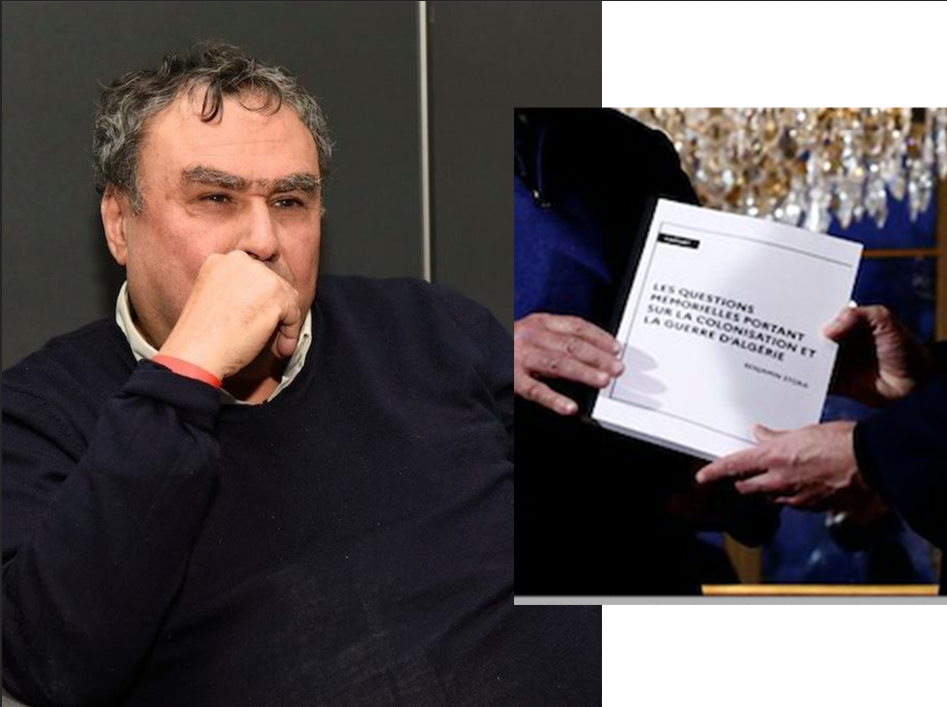
On Wednesday 20 January 2021, the French historian Benjamin Stora submitted his report on the France-Algeria memory. If the Elysée Palace consents to initiate symbolic acts, there is no question of apologies or repentance for France.
The Stora report, by the name of the French historian Benjamin Stora, of Algerian origin, on the memory of the Algerian war, was submitted to the Elysée Palace. However, France still refuses to apologize to the Algerian people. “There will be symbolic acts, but no repentance or apology,” reads the French Presidency statement. According to the Algerian essayist Akram Belkaïd, there is no official request for an apology from the Algerian side, it has never been a political leitmotiv. “It’s brandished from time to time, because you want to annoy Paris, because you want to create tension, but it’s a very rare claim,” he said.
In his report, the historian in charge of the memorial question on the French side proposes the creation of a commission entitled “Memories and truth” which will be responsible for “promoting joint initiatives between France and Algeria on memory issues”. It will also be responsible for organizing “important commemorations.” It is also planned to transform into places of memory the four internment camps located on French territory where thousands of Algerians were detained from 1957. According to the Stora report, the plaques, placed near these camps, could recall their history.
In another vein, Benjamin Stora recommends that France acknowledge its responsibility for the murder of Algerian lawyer Ali Boumendjel, who was tortured and then executed in 1957, before his death was disguised as suicide. In this regard, Algerian essayist Akram Belkaïd says, “For now, it would be something important. And then let us know a little about what happened to Larbi Ben M’hidi, for example, whose assassination the French soldier Aussaresses claimed responsibility for.”
“More than 250,000 Algerians were killed in the war, and up to 2,000,000 were sent to regrouping camps out of a population of 10,000,000. Nearly 25,600 French soldiers were killed and 65,000 wounded. European civilian casualties exceed 10,000 in 42,000 recorded violent incidents.”
In addition to apologies, Algiers asked for the restoration of the entire archives of the colonial period from 1830 to 1962, while Paris maintained easy access for researchers from both countries. “It is obvious that there is an absolute fantasy in Algeria about these archives,” says Akram Belkaïd, adding: “Some are convinced that France still holds unspeakable secrets about betrayals, about people who would have served France’s interests by being at the FLN… Here too, it is necessary to open the archives and their reciprocal access, because very few Algerian researchers have access to their own archives in Algeria. So much so that some prefer that they remain in France, lest they be altered or put under the bushel.”
As a war of independence and decolonization, the Algerian War, which took place between 1954 and 1962, pitted Algerian nationalists, gathered mainly under the banner of the National Liberation Front (FLN), against France. It was both a double military and diplomatic conflict and also a double civil war, between the communities on the one hand and within the communities on the other. It took place mainly on the territory of French Algeria, with repercussions also in metropolitan France.
It led to serious political crises in France, with the consequence of the return to power of Charles de Gaulle and the fall of the Fourth Republic, replaced by the Fifth Republic. After giving the French army time to fight the National Liberation Army (NLA) using all the means at its disposal, de Gaulle finally leaned towards self-determination as the only possible way out of the conflict, which led a fraction of the French army to rebel and enter into open opposition with the power. This rebellion was quickly defeated
More than 250,000 Algerians were killed in the war, and up to 2,000,000 were sent to regrouping camps out of a population of 10,000,000. Nearly 25,600 French soldiers were killed and 65,000 wounded. European civilian casualties exceed 10,000 in 42,000 recorded violent incidents.
After the Evian Accords of 18 March 1962, the conflict had led to the independence of Algeria on 3 July 1962, and had led to the exodus of the inhabitants of European origin, known as the Blackfoot and the Jews, as well as the massacre of nearly 50,000 people.
ALGERIA
ALGERIA – Former President Bouteflika’s younger brother sentenced to two years in prison

The Algerian judiciary imposed a two-year prison sentence against the brother of former President Abdelaziz Bouteflika , who died on 17 September for «obstructing the smooth running of justice».
Said, younger brother of the deceased former President Abdelaziz Bouteflika, was sentenced to two years in prison on Tuesday night for obstructing the smooth running of justice, the official APS agency said.
Before the Criminal Court of Dar El Beida, east of Algiers, the prosecutor’s office had requested seven years firm.
He was prosecuted along with other former officials for “incitement to falsification of official documents”, “abuse of office”, “obstruction of justice”, “incitement to judicial bias”, and “contempt of court”.
Cited in other cases under investigation, he should remain in prison even after having already served the two-year sentence imposed on him on Tuesday.
Several relatives of the late President Abdelaziz Bouteflika, who was forced to resign at the beginning of April 2019, under pressure from the Hirak and army demonstrations, have been sentenced or detained by the courts for acts of corruption.
Source : Koaci
ALGERIA
ALGERIA – Partial reshuffle of government and dissolution of Parliament
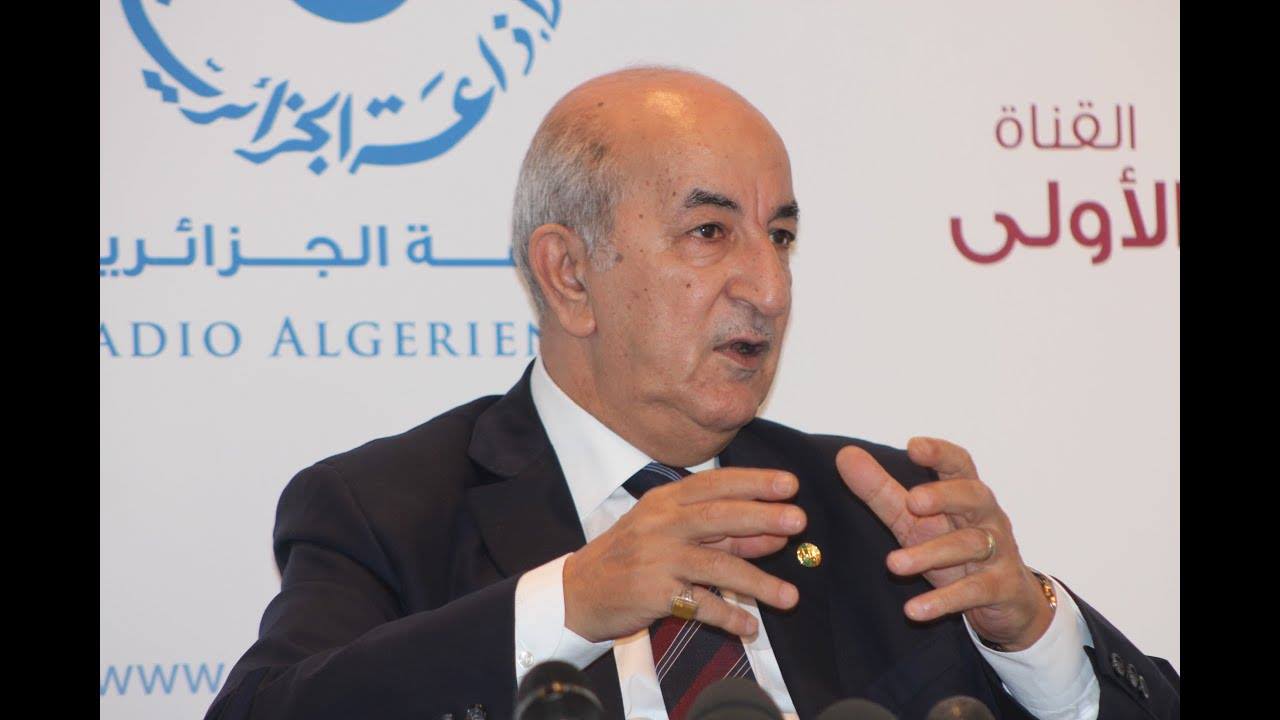
Algerian President Abdelmadjid Tebboune proceeded, Sunday, February 21, 2021, to a partial reshuffle of his government. He also dissolved the lower house of Parliament, announcing the organization of early elections.
As he had announced, the Algerian President took action by partially reshaping his government. The highly criticized Prime Minister, Abdelaziz Djerad, keeps his post as well as several other ministers.
Indeed, the new appointments concern Mohamed Bacha who becomes the new Minister of Industry; Mohamed Arkab will be in charge of Energy and Mines; Kamel Nasri is appointed to the Ministry of Transport and Public Works; Mustapha Kamel Mihoubi will be in charge of the Department of Water Resources; Mohamed Ali Boughazi in Tourism;Tarek Belaribi will head Housing and Town Planning; Dalila Boudjemaa will be in Environment and Hocine Charhabil becomes Minister of Statistics and Digitization.
However, the Minister of Justice, Belkacem Zeghmati, symbol of the judicial repression against the opposition and Hirak activists, keeps his portfolio, as well as the Minister of Communication and government spokesman, Ammar Belhimer.
The head of state also dissolved the National People’s Assembly (NPC) on Sunday, paving the way for early parliamentary elections within a maximum of six months. Even if no date has yet been chosen for the organization of the vote, the political class is counting on the month of June.
President Abdelmadjid Tebboune announced on Thursday, February 18, 2021, during an address to the Nation, that he would carry out a reshuffle of his government as well as the dissolution of the parliament to organize early elections. He made this statement on the eve of the second anniversary, on February 22, of the popular protest movement, the “Hirak”.He had also, in a gesture of appeasement, pardoned dozens of detainees belonging to the movement.
ALGERIA
ALGERIA: President Abdelmadjid Tebboune dissolves Parliament and thanks Hirak activists
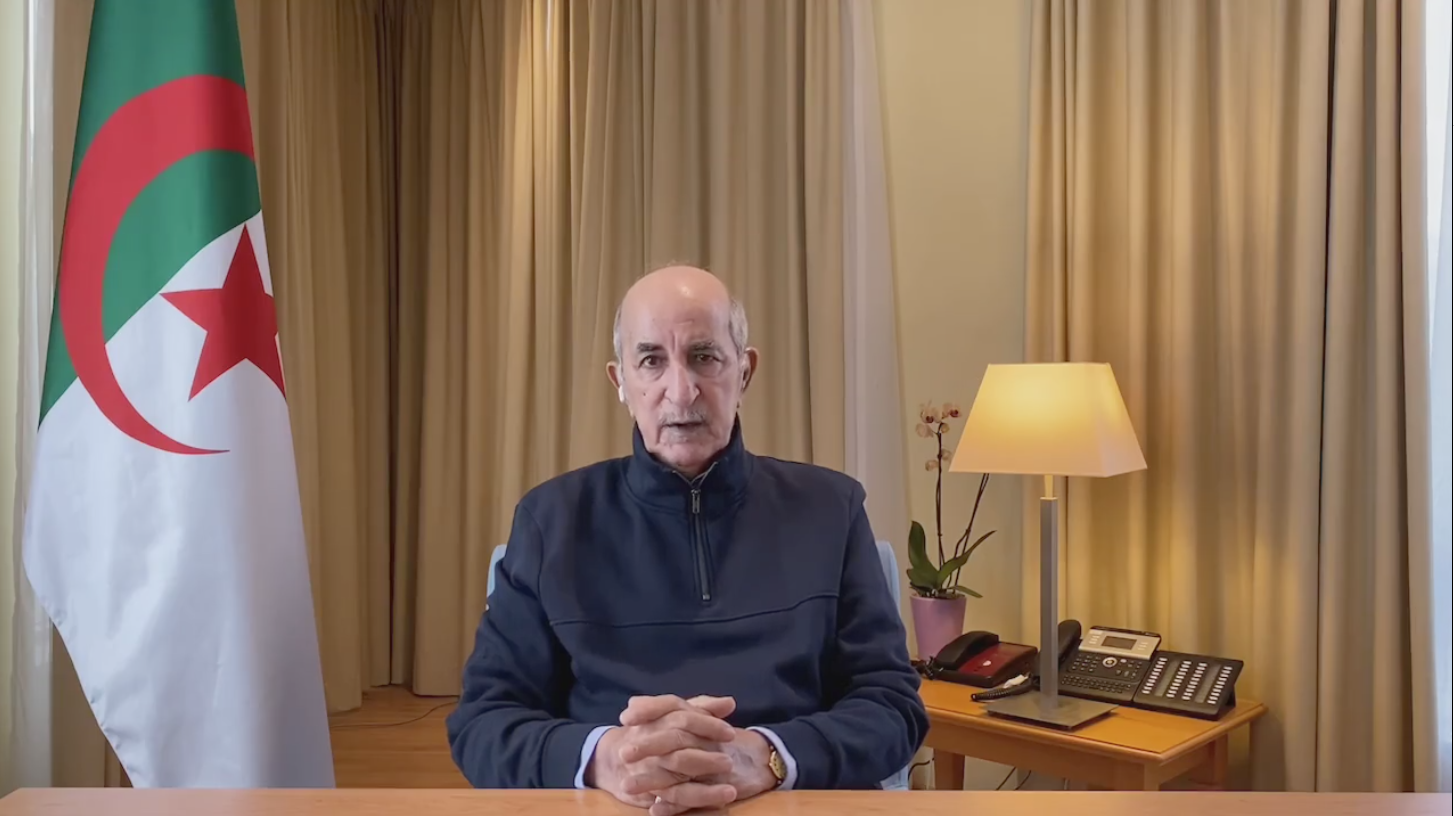
The Algerian President, Abdelmadjid Tebboune, announced Thursday, February 18, in a speech to the Nation, the dissolution of Parliament. The head of state will proceed with a cabinet reshuffle within 48 hours. He called for early elections before informing that he is granting the pardon to Hirak detainees, a gesture of appeasement in the direction of this popular protest movement that celebrates its two-year anniversary on February 22.
The Head of State, Abdelmadjid Tebboune, delivered, Thursday, February 18, 2021, a message to the Nation coinciding with the national day of homage to the “martyrs” of the War of Independence (1954-1962). The Algerian President announced that he had dissolved Parliament and promised a cabinet reshuffle within 48 hours. This overhaul will involve sectors that are running deficits in their management, which are felt by citizens and us,’ he said.
He subsequently called for early elections, saying he wished to open his doors to youth.“Young people must have political weight,” he said, announcing the upcoming establishment of a Supreme Youth Council and the National Observatory of Civil Society. Consequently, the parliamentary elections, which were planned for 2022, will finally take place by June, at the latest in September. The vote will take place on the basis of a new electoral law that will be promulgated by order since Parliament has been dissolved.
The Algerian head of state also announced that he had granted the pardon to several detainees of the Hirak movement. “The “blessed Hirak” saved Algeria. I decided to grant the presidential pardon to some thirty people for whom a court decision had been rendered, as well as to others for whom no verdict had been rendered. Between 55 and 60 people will join their families from tonight (Thursday) or tomorrow (Friday),” he said.However, the Presidency said in a tweet that the pardon only concerned “perpetrators of crimes related to information and communication technologies”, without disclosing names.
Note that this announcement comes on the eve of the second anniversary of the unprecedented popular uprising of February 22, 2019. The “Hirak” protest movement forced President Abdelaziz Bouteflika to give up a fifth presidential term and leave power.Calls to demonstrate, throughout Algeria, for Monday, February 22, circulate on social networks.
-

 EAST AFRICA1 year .
EAST AFRICA1 year .TANZANIA – President meets with Chairman of the Board and CEO of the Merck Foundation
-

 CHAUD TOO CHAUD3 years .
CHAUD TOO CHAUD3 years .POLITICS – [INTERVIEW EXCLUSIVE] – MADAGASCAR – Fanirisoa Ernaivo, a politician and activist committed to the rule of law and respect for democracy
-
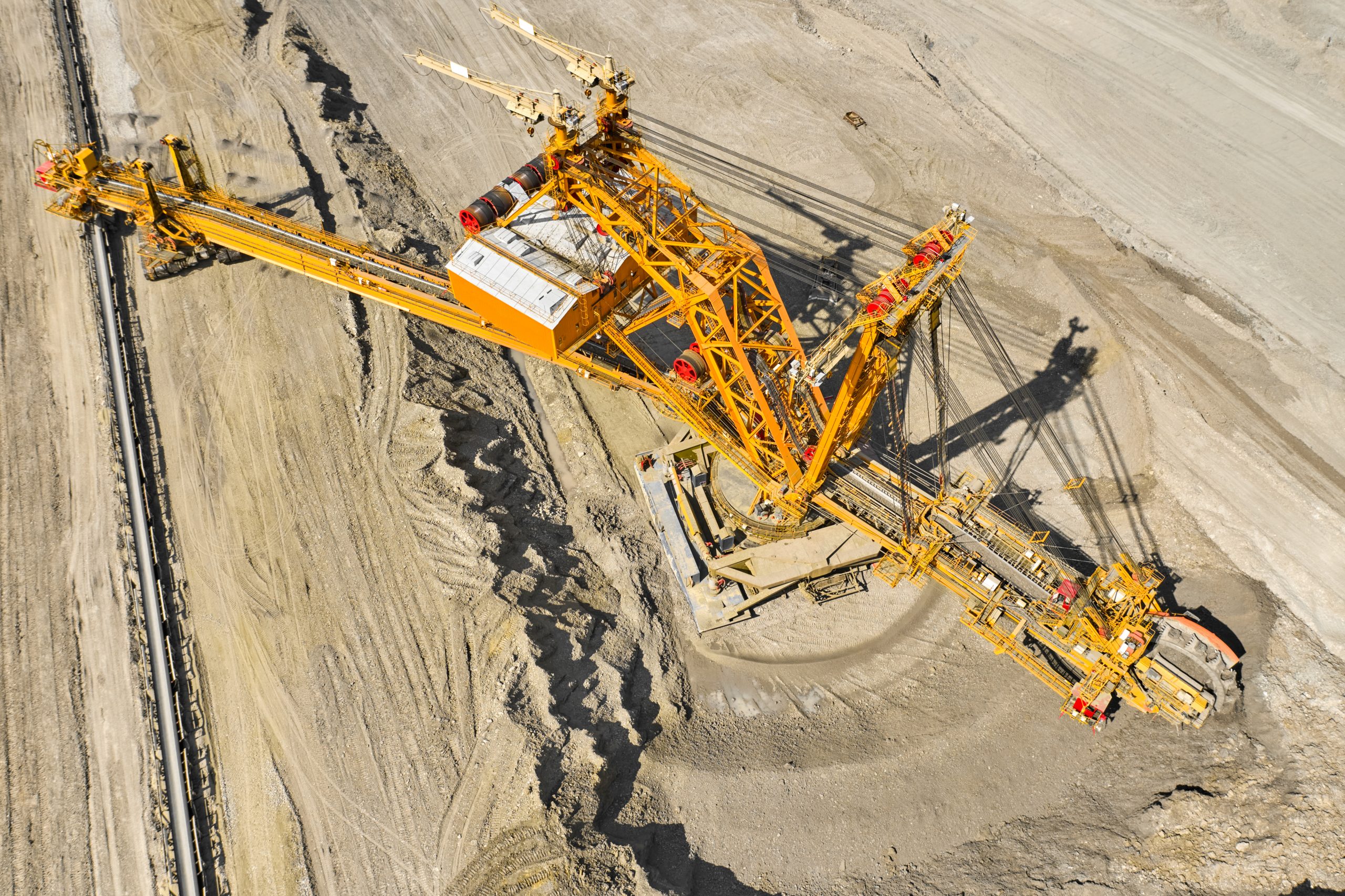
 BUSINESS8 months .
BUSINESS8 months .GUINEA – Authorities demand repatriation of mining revenues
-
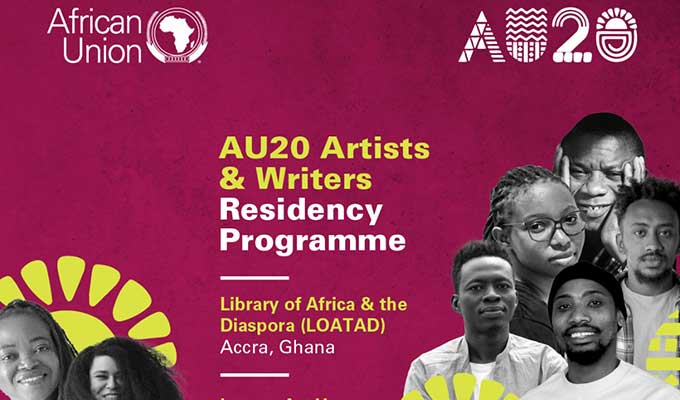
 CULTURE2 years .
CULTURE2 years .AFRICA – African writers and artists celebrate the 20th anniversary of the African Union
-
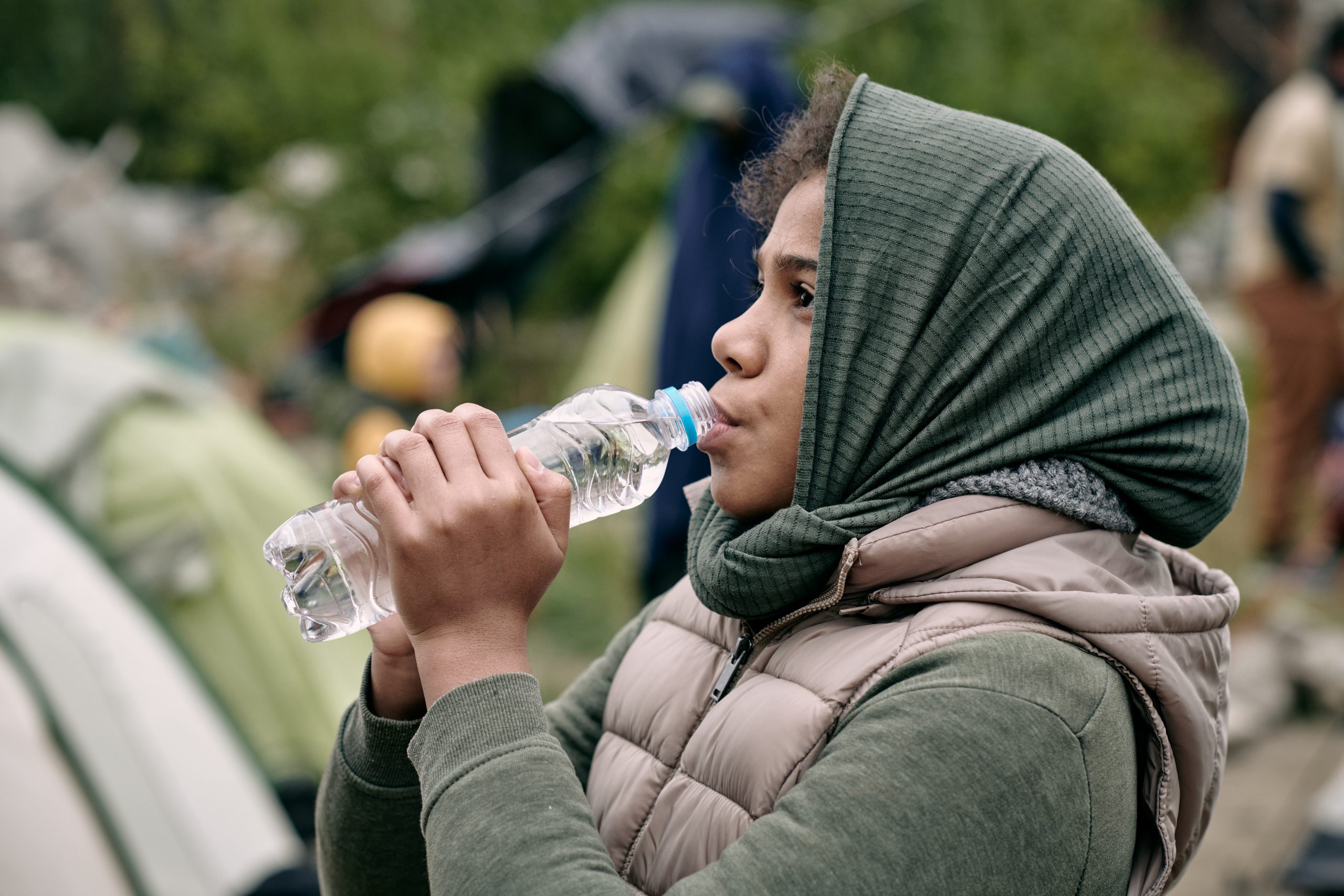
 IMMIGRATION10 months .
IMMIGRATION10 months .AFRICA – Migrant smuggling brings 59 billion CFA francs to smugglers per year
-

 POLITICS5 months .
POLITICS5 months .SENEGAL – Presidential election 2024: Registration of 79 candidates declared
-

 CULTURE3 years .
CULTURE3 years .SENEGAL – “Sadik Lady” by Viviane Chidid
-

 POLITICS3 years .
POLITICS3 years .SOUTH AFRICA – Former President Jacob Zuma in prison



